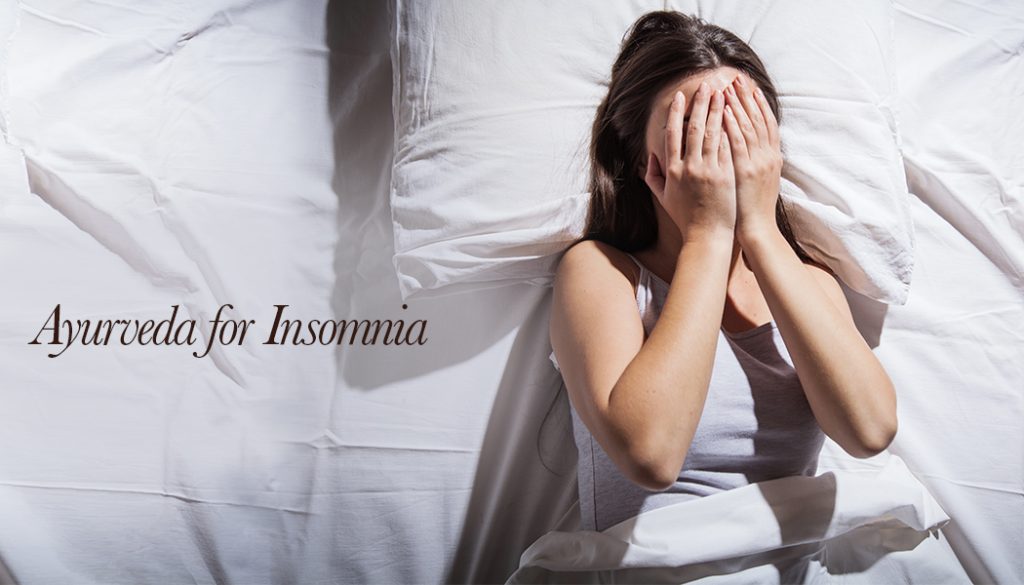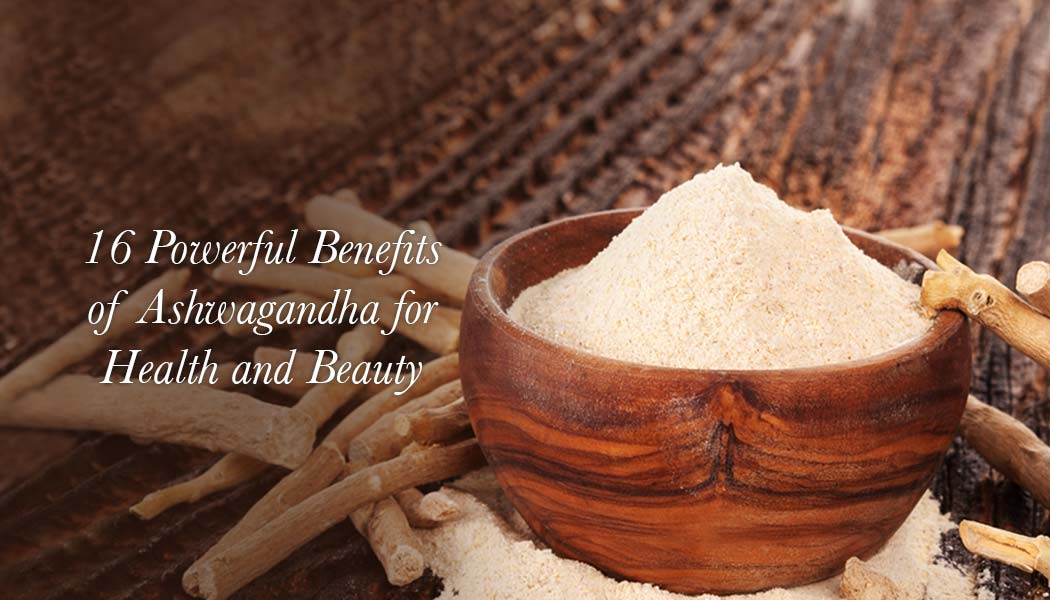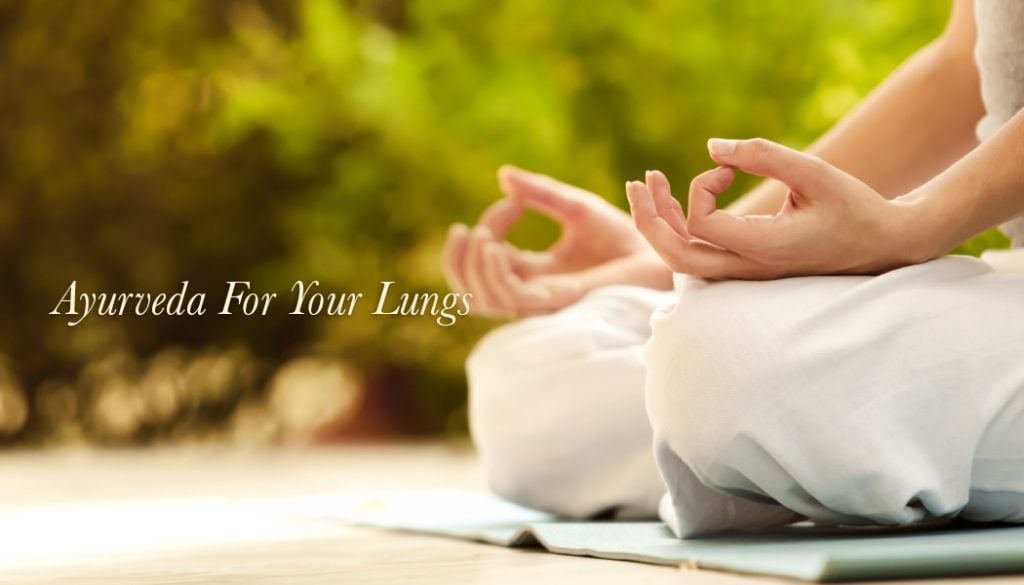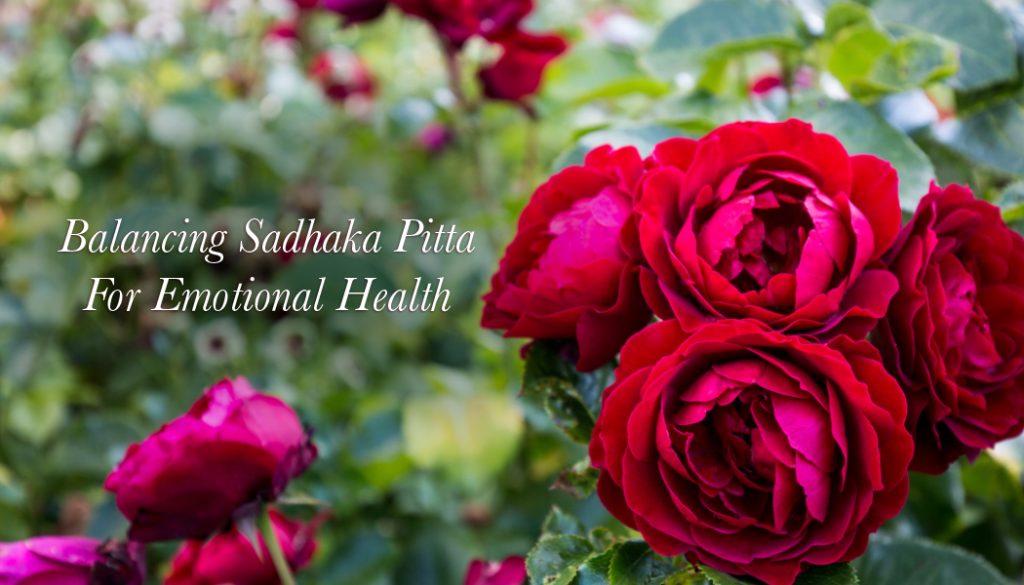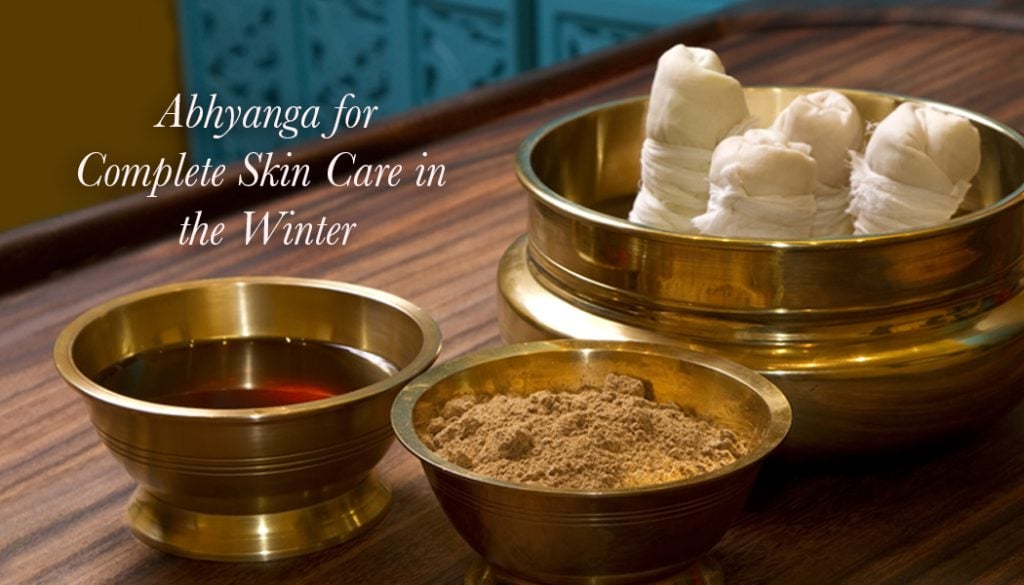- 19 January 2018
- 5 mins read
In everyday language, people refer to insomnia and the occasional bouts of sleeplessness interchangeably, but they are not the same. Insomnia is more ‘long-term’ sleeplessness - something that has become habitual - to the point of becoming a disorder which therefore affects the health and productivity of the person suffering from it. Not everyone who finds themselves dealing with occasional sleeplessness, is necessarily on their way to become an insomniac.
Causes of insomnia could be medical, psychological or life-style related. Body pain, congestion, asthma, gastrointestinal issues, anger, worry, depression, even excitement and happiness are known causes of insomnia. Too much caffeine, jet lag, being over-worked and eating too late in the evening or night – there are many more factors that can be added to the list of root causes of insomnia.
In Ayurveda, insomnia is referred to as ‘anidra’. Dosha imbalances or their weakening and impairment as a result of any, or more of the above mentioned root causes, causes insomnia. This is because the very ‘prakriti’ or innate constitution of the individual is thrown out of sync. The disorientation you feel when suffering from insomnia is but an outward manifestation of the confusion your prakriti is feeling on the inside. Vata and Pittadominant personalities will find themselves more vulnerable to insomnia.
Vata is governed by the natural element Air/Wind. This shows in their disposition, particular physical quirks and the characteristics of their daily routine. Vata personalities are quick on their feet and are fast learners. They write, speak, and/or walk fast, and can burn themselves out as they ‘breeze’ in and out of sporadic, short bursts of passionate energy and creativity. When imbalanced, they feel ‘interrupted’, easily frustrated, and restless. They toss and turn through the night because they can’t lull the mental network of ideas and thoughts in their mind to sleep.
Pitta is governed by Fire. They have the proverbial fire in their belly as they’re ambitious, sharp, and focussed individuals at the peak of their abilities with excellent leadership qualities and a great memory. Pitta people have healthy energy levels and metabolic rates, as well as a robust appetite which helps them keep their high-octane outlook to everything constantly refreshed. Their passion can run into overdrive though, making prone to anger, impatience, jealousy, and tantrums. Like the smouldering character of the element that governs them, the ‘crackling’ fidgety nature of Pitta people, makes it difficult for them to sleep for long hours at a stretch. They tend to wake up intermittently and then struggle to fall back asleep.
AYURVEDIC PRESCRIPTIONS FOR INSOMNIA
ESTABLISH A ROUTINE
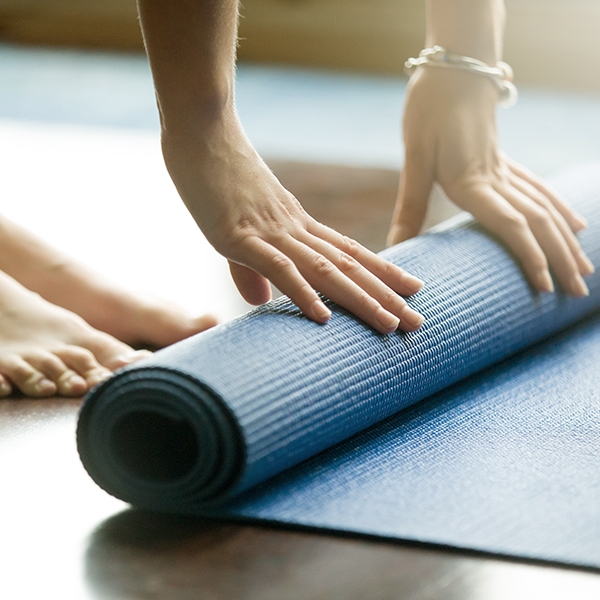
Both Vata and Pitta personalities would benefit from more regimented living, even if in small, manageable doses. You should do your best to make sure that you start and end your day, and eat and exercise during the day, at about the same hours. The relative harmony and stability would help induce a mental sense of placidity and physical calmness, making it easier to conclude the day with a good night’s sleep.
LIMIT INTAKE OF STIMULANTS

Stimulants like Caffeine should be avoided ideally after lunch time or at least after 6 pm. Avoid prolonged periods of time in front of the TV, iPad/laptop, and the phone at the end of your day. A regular dose of digital-detoxing goes a long way in improving sleep quality.
INTRODUCE ‘BRAIN TONICS’ INTO YOUR DIET
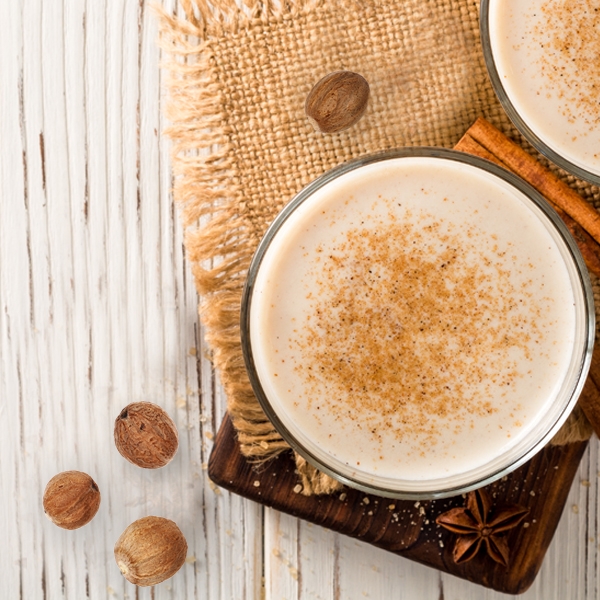
Brahmi, Vacha (Calamus), Ashwagandha, Jatamansi, Bhringraj and Valerian when used in herbal powder or oil formulations, are extremely effective remedies for insomnia. They induce a sense of psychological calibration between mind and body, thereby creating a tranquillising effect. They also help disperse any anxiety-ridden feelings of tension and unease that prevent healthy, restful sleep. Chamomile and lavender have similar effects when taken as teas. If you prefer warm milk, Ayurveda suggests a pinch of nutmeg for a stress-releasing effect.
DAILY BODY MASSAGE Brahmi, Vacha (Calamus), Ashwagandha, Jatamansi, Bhringraj and Valerian when used in herbal powder or oil formulations, are extremely effective remedies for insomnia. They induce a sense of psychological calibration between mind and body, thereby creating a tranquillising effect. They also help disperse any anxiety-ridden feelings of tension and unease that prevent healthy, restful sleep. Chamomile and lavender have similar effects when taken as teas. If you prefer warm milk, Ayurveda suggests a pinch of nutmeg for a stress-releasing effect.
DAILY BODY MASSAGE
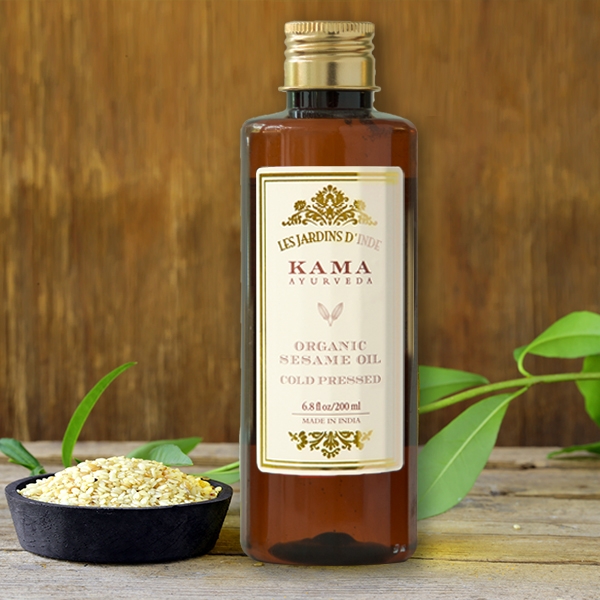
Try to incorporate a daily body massage, or at least a foot or head massage which will help relax your muscles and release any muscular knots. Using warm sesame oil, followed by a warm bath around an hour later is very effective.
AROMATHERAPY
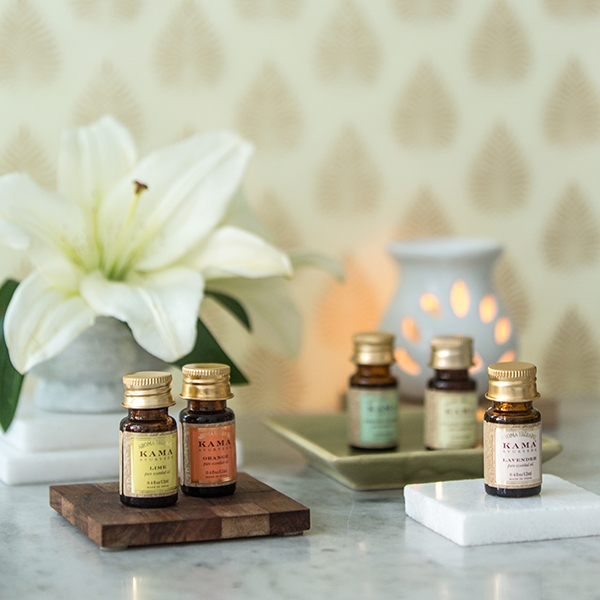
If you don’t like the idea of oil massages then indulge in some simple aromatherapy during your bath time. Use an essential oil diffuser to smoke your personal space lightly with lavender, ylang-ylang, rose, camphor, or frankincense or put a few drops of any of these oils in your bath water.
If you somehow feel that all these suggestions require too much of an effort, or upheaval then the very least you can do to help your insomnia, is to take 10-15 minutes out for meditation and breathing exercises. You can do this whilst sitting in your bed, before you turn in for the night. Alternate nostril breathing, rhythmic pranayama exercises, or simple japa/chanting meditation will help you settle your nerves at the end of a harrowing day, and gather your thoughts subconsciously in preparation for the next one. It’s a small way to get a grip on any anticipated stresses in the days ahead, but a significant way to re-introduce healthy sleeping patterns in your life.
